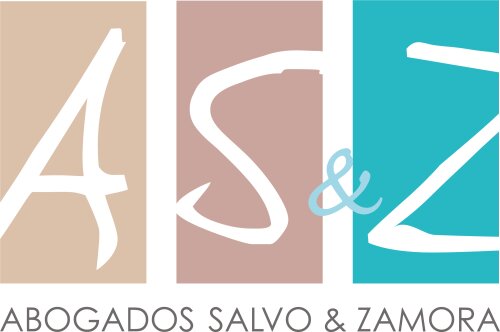Best Sanctions & Export Controls Lawyers in Valparaíso
Share your needs with us, get contacted by law firms.
Free. Takes 2 min.
List of the best lawyers in Valparaíso, Chile
About Sanctions & Export Controls Law in Valparaíso, Chile
Sanctions and export controls are regulatory tools that govern the movement of goods, technology, services and funds across borders. In Chile these rules combine international obligations - such as United Nations Security Council resolutions - with national regulations enforced by Chilean authorities. Valparaíso is one of Chiles principal port and customs regions, making the local legal and administrative environment especially important for exporters, importers, freight forwarders and financial institutions that operate through the Port of Valparaíso or the region.
Sanctions can restrict trade, freeze assets or prohibit dealings with listed persons, entities or countries. Export controls typically focus on weapons, munitions, and dual-use items that can have military or civilian applications, as well as sensitive technologies and services. Compliance requires understanding which transactions need licences, how to screen customers and counterparties, how to classify goods, and how to respond if a shipment is detained or a party appears on a sanctions list.
Why You May Need a Lawyer
Sanctions and export controls often sit at the intersection of international law, domestic regulation, customs procedure and criminal law. You may need a lawyer if any of the following apply to you:
- Your company exports or re-exports items that could be subject to controls, including dual-use items, software, technical assistance or defence articles.
- You are unsure whether a counterpart, buyer or end-user appears on a sanctions or denied-parties list maintained by the United Nations, other countries or Chilean authorities.
- A shipment has been detained or seized by customs in Valparaíso, or a customs audit or administrative inspection is underway.
- You received a request for information from a government agency, or a government is investigating possible sanctions breaches or unlawful exports.
- Your financial institution flagged a transaction for sanctions risk, or you received a notice of asset freeze or similar restrictive measure.
- You need to design, implement or review an export controls and sanctions-compliance programme to meet regulatory expectations and reduce legal risk.
- You face potential criminal or administrative sanctions, including fines or other penalties, and need representation in proceedings before administrative authorities or criminal courts.
Local Laws Overview
Chile does not operate an isolated sanctions regime. The country implements international sanctions adopted by the United Nations and may also coordinate with partner jurisdictions when adopting additional measures. Key features of the local framework include:
- Administrative responsibility and enforcement. Multiple Chilean authorities play roles in enforcement: the Ministry of Foreign Affairs and its international trade offices coordinate foreign-policy measures and export authorisations; the National Customs Service manages inspections and enforcement at ports including Valparaíso; financial regulators and the Unidad de Inteligencia Financiera (UAF) monitor and investigate financial flows that may relate to sanctions or prohibited activities.
- Export licensing and classification. Exports of arms, munitions and certain technologies require licences or authorisations. Export control regimes often focus on dual-use items and technologies that may be sensitive for national security or foreign policy reasons. Exporters must classify goods correctly and obtain the relevant permits before shipment.
- Customs procedures in Valparaíso. The Port of Valparaíso is a major international gateway. Customs declarations, cargo manifests and supporting documentation must be accurate. Customs may detain goods pending checks when there are suspicions about prohibited end-uses, misclassification or links to sanctioned parties.
- Financial and reporting obligations. Banks, brokers and other financial intermediaries must comply with anti-money-laundering and counter-terrorist financing rules, which intersect with sanctions enforcement. Obligations include due diligence, transaction monitoring and reporting suspicious transactions to the UAF.
- Penalties. Violations can lead to administrative sanctions such as fines and licence revocations, civil liability and, in serious cases, criminal prosecution. Penalties escalate when conduct is intentional, systematic or involves prohibited items or designated persons.
Frequently Asked Questions
What is the difference between a sanction and an export control?
A sanction is a targeted restriction imposed for foreign policy or national security reasons, often restricting transactions with specific countries, entities or individuals. An export control is a regulatory mechanism restricting the transfer of certain goods, technologies or services because of security, safety or non-proliferation concerns. They overlap when sanctions restrict exports of controlled items to designated parties or territories.
Do Chilean sanctions follow United Nations sanctions?
Yes. Chile implements United Nations Security Council sanctions and may adopt additional measures consistent with its foreign policy. That means UN listings and resolutions are binding and often form the basis for national enforcement actions.
Who enforces export controls and sanctions in Valparaíso?
Enforcement typically involves several authorities. The Ministry of Foreign Affairs and its trade or export control units manage licences and authorisations. The National Customs Service enforces rules at ports and inspects cargo. Financial regulators and the Unidad de Inteligencia Financiera monitor financial transactions. Local courts and prosecutors become involved in administrative or criminal proceedings.
How do I know if my product needs an export licence?
You must classify the product to determine whether it falls under controlled categories. If the product is military or dual-use, involves sensitive technology or is subject to a restriction linked to an embargo or sanction, an export licence or authorisation is likely required. A customs broker or a specialised lawyer can help with classification and licence applications.
What should I do if customs in Valparaíso detains my shipment?
Act quickly. Gather and preserve all shipping documents, commercial invoices, licence information and correspondence with the buyer. Contact your customs broker and a lawyer experienced in export controls and customs law. Prompt legal advice can help with administrative appeals, provision of evidence about end-use, and steps to mitigate penalties.
Can I be held criminally liable for an export control or sanctions breach?
Yes. Depending on the circumstances, breaches can lead to administrative fines, civil liability and criminal charges. Criminal liability is more likely where there is intent, knowledge that a transaction violated a prohibition, or involvement in evasion or concealment schemes.
Do sanctions apply to re-exports or transshipments through Chile?
Yes. Re-exports and transshipments can be subject to controls and prohibitions, especially when cargo passes through Chilean territory or ports like Valparaíso. Exporters and logistics providers must ensure that onward shipments do not violate sanctions or export control obligations.
How should small and medium enterprises approach compliance?
SMEs should create basic but effective controls: establish due diligence procedures for customers, screen counterparties against sanctions lists, classify goods for export control purposes, keep complete records of transactions, and train staff involved in international trade. Obtain legal advice to tailor a compliance programme to the companys risk profile.
What happens if a customer or counterparty appears on a sanctions list after a contract is signed?
If a counterparty becomes designated, parties must immediately suspend prohibited transactions and seek legal advice. You may need to notify authorities, quarantine or return goods, and manage contractual issues with buyers and insurers. Early legal guidance reduces exposure and helps manage contractual remedies and force majeure considerations.
How do I choose a lawyer in Valparaíso for sanctions and export control matters?
Look for lawyers or firms with demonstrated experience in international trade, customs law, export controls and government investigations. Practical experience with the Port of Valparaíso, customs procedures and local enforcement authorities is valuable. Ask about past cases, regulatory contacts, fees and whether the lawyer can coordinate with customs brokers, technical experts and financial advisors.
Additional Resources
When seeking information or assistance in Valparaíso, consider these types of local and national resources:
- Ministry of Foreign Affairs - national office coordinating foreign-policy measures and export authorisations.
- National Customs Service - local customs offices administer declarations, inspections and detentions at the Port of Valparaíso.
- Subsecretariat or agency responsible for foreign economic relations - offices that manage trade policy and export controls.
- Unidad de Inteligencia Financiera (UAF) - for matters involving financial transactions, suspicious activity reporting and anti-money-laundering issues.
- Port of Valparaíso authorities and terminal operators - for operational questions about cargo handling and detentions.
- Colegio de Abogados and local bar associations - for referrals to qualified local counsel.
- Customs brokers and freight forwarders based in Valparaíso - for help with logistics, classification and documentation.
Next Steps
If you think you need legal assistance with sanctions or export controls in Valparaíso, follow these steps:
- For an immediate compliance check, collect all relevant documents: commercial invoices, bills of lading, export licences, contracts, emails and customs filings. This will speed up initial legal assessment.
- Contact a lawyer or firm with experience in export controls, sanctions and customs matters. Ask about initial consultations, typical timelines for reviews and fee structures.
- If a shipment is detained or you received a request from an authority, seek urgent legal advice to preserve rights and respond within administrative deadlines.
- Implement or update basic compliance measures: sanctioned-party screening, transaction monitoring, correct product classification, record-keeping and staff training. A lawyer can help design proportionate policies and prepare voluntary disclosures when appropriate.
- Keep a log of all actions taken and communications with authorities, customers and service providers. Clear documentation is essential to demonstrate good-faith compliance and can mitigate enforcement consequences.
Getting professional advice promptly reduces legal risk and helps protect your business operations through the Port of Valparaíso and beyond.
Lawzana helps you find the best lawyers and law firms in Valparaíso through a curated and pre-screened list of qualified legal professionals. Our platform offers rankings and detailed profiles of attorneys and law firms, allowing you to compare based on practice areas, including Sanctions & Export Controls, experience, and client feedback.
Each profile includes a description of the firm's areas of practice, client reviews, team members and partners, year of establishment, spoken languages, office locations, contact information, social media presence, and any published articles or resources. Most firms on our platform speak English and are experienced in both local and international legal matters.
Get a quote from top-rated law firms in Valparaíso, Chile — quickly, securely, and without unnecessary hassle.
Disclaimer:
The information provided on this page is for general informational purposes only and does not constitute legal advice. While we strive to ensure the accuracy and relevance of the content, legal information may change over time, and interpretations of the law can vary. You should always consult with a qualified legal professional for advice specific to your situation.
We disclaim all liability for actions taken or not taken based on the content of this page. If you believe any information is incorrect or outdated, please contact us, and we will review and update it where appropriate.









